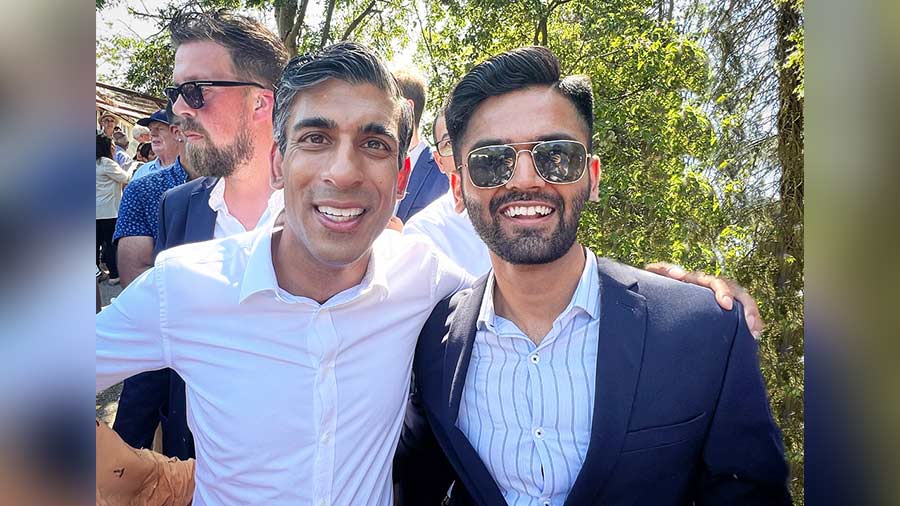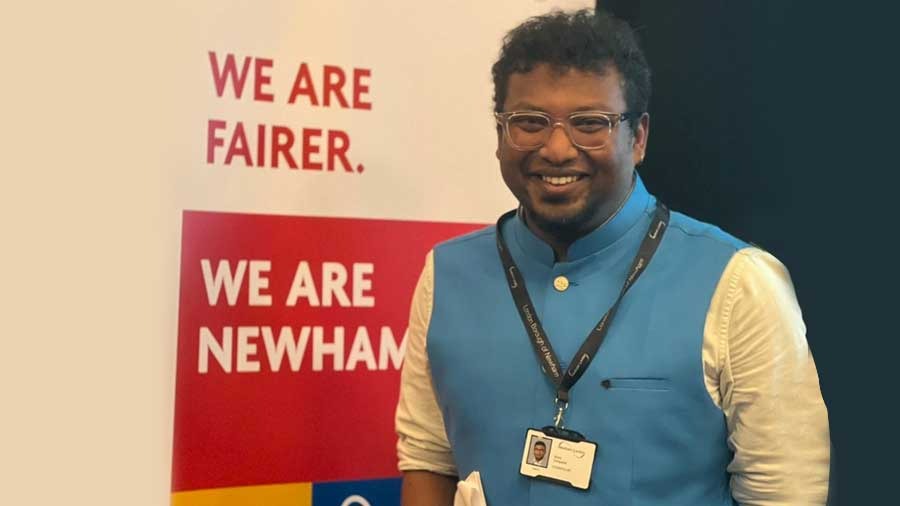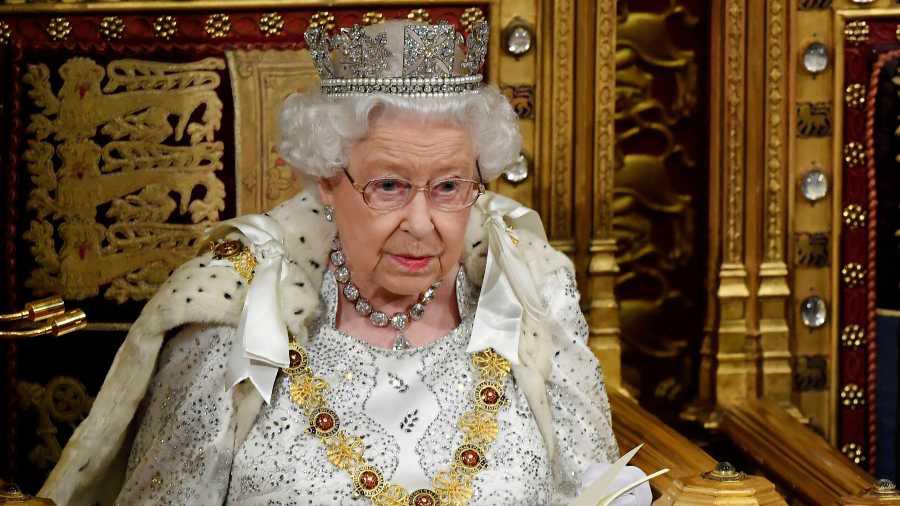While Indians across the world are still celebrating the appointment of Rishi Sunak as the first person of Indian-origin to become the Prime Minister of the UK, it is time to acknowledge the contributions of another political leader whose Indian roots have blossomed to great effect in Britain. Ranjeet Rathore, 26, from Jaipur, is the first Indian as well as the first international student to win their university student elections in the UK, a feat he achieved in June 2018. He held his presidential term till July 2020.
My Kolkata caught up with Rathore to take a deep dive into his political journey, his struggles and aspirations, the challenges of Indian students in the UK and more.
‘People like me were never meant to run for elections’
My Kolkata: Tell us more about how you won the students’ union election at Brunel University, London.
Ranjeet Rathore: My story is an unlikely one. People like me were never meant to run for elections. For people like myself it was never about planning our path to big universities or even to London. It was about keeping our heads low and surviving the tide because we are minorities here. Believing in the Indian teaching of Vasudhaiva Kutumbakam, which translates to "the world is one family”, I was able to get involved in my university and represent the voices of 15,000 students.
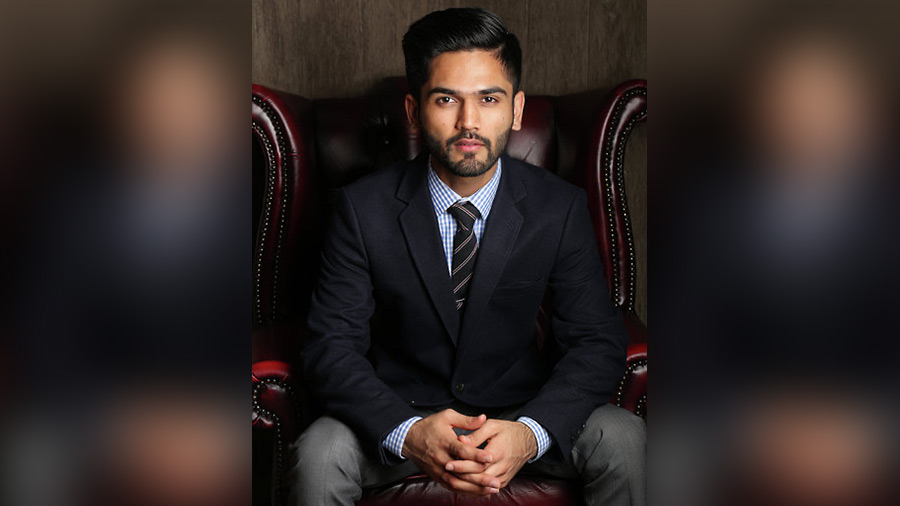
Rathore’s election victory produced mixed responses Ranjeet Rathore
How did everyone react when you became the first-ever Indian students’ union president in the UK?
The news of my victory was met with mixed reactions, as I wasn’t the traditional white candidate running for president. I wasn’t the “obvious choice”, as one would say! On one hand, the international student community was overjoyed with the results as “one of their own” had been elected. And on the other, there were people who had their doubts and were naysayers with respect to the results.
What are you currently involved in?
I’m currently doing a balancing act of sorts, with my time split across two major things. First, community work, which I’m super passionate about, where I volunteer my time and resources with a number of charities from food banks to community trusts to working with youth organisations as well as the Indian High Commission. Second, working with the national political party — The Conservatives, in various capacities, from helping at the grassroots with organising and mobilising campaigns to advocating on a large scale when necessary.
‘We can’t expect politics to change if we leave it to the same old people to run it’
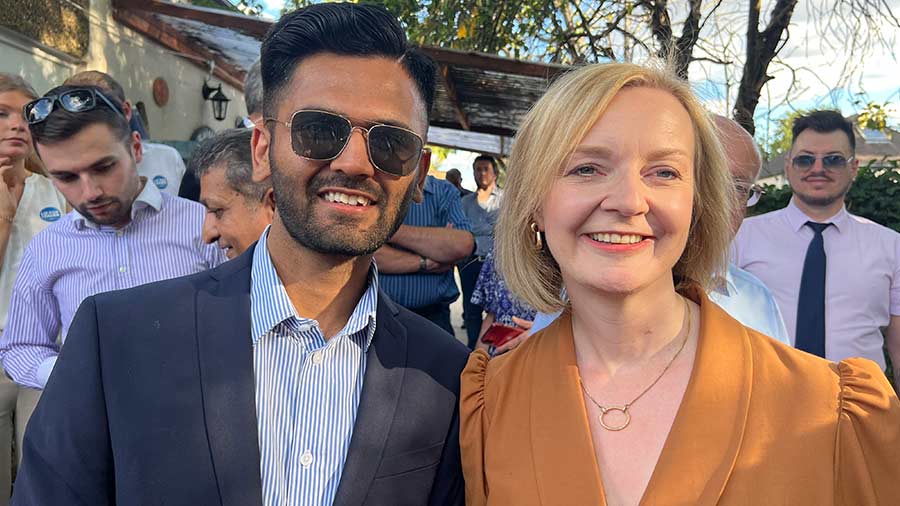
Rathore with former UK PM Liz Truss Ranjeet Rathore
How did you get interested in student politics in the UK? What are the challenges of being a student politician of colour in the UK?
Initially, I didn’t believe politics was for me. But we can’t expect politics to change if we leave it to the same old people to run it. Politics is for everyone. I’m a big believer in the fact that we need leaders who understand what it’s like to live like us, to face the everyday issues we face. That is why I got into politics. To give our youth and our communities a voice.
The challenges of being a youth leader of colour are many. From systemic oppression to being up against elitist groups to being treated as a second-class citizen.
What is your view of the political affiliations of the student community in the UK? Are they inclined more towards Labour or the Conservatives? Do student affiliations fluctuate a lot depending on demography and/or ethnicity?
There are both types of affiliations (towards the Conservatives and Labour) that prevail in the UK. Demographics and socio-economic factors play a major role in deciding which side you lean. Some universities and campuses are very vocal and Labour-leaning. Some universities are liberal but have other political views. With time and age, students get more clarity on what the right affiliation is for them as individuals. Regardless of political affiliation, I believe quality education should be the key focus. With the right education, students and adults in general will make more informed political decisions.
‘I was a volunteer campaigner for Team Boris, pulling in the masses to come out and campaign’
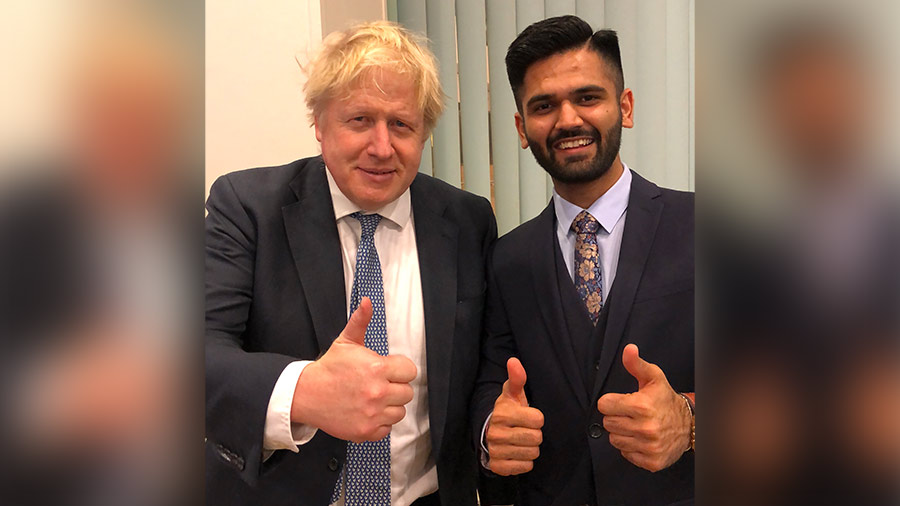
Rathore has worked closely with and for Boris Johnson Ranjeet Rathore
What did your work with Boris Johnson’s team entail?
Perhaps the highlight of my work so far came during the two-election season we saw in 2019, one being the snap elections and the second being the general elections. I was a volunteer campaigner for Team Boris, pulling in the masses to come out and campaign. Our work involved facilitating a wide range of conversations, developing strategies to drive change in the boroughs and beyond, delivering projects, resources and creating awareness about important causes through public engagements and door-to-door campaigning.
What are your long-term plans for UK politics? Do you ever plan to join politics in India?
There’s this famous saying by Marc Anthony, “If you do what you love, you'll never work a day in your life.” I plan to carry on doing what I love doing for the community. There are general elections in the UK in 18 months’ time, and if during the lead up to it, the right opportunity comes along, I’ll try to do justice to whatever role I’m given in the UK’s political landscape. In terms of Indian politics, I plan to be a cheerleader of India’s economic growth and support its young leaders by getting more involved in shaping the nation. With India assuming the presidency of G20, I am leading projects for Youth G20 from the UK to discuss and debate global challenges and policy recommendations that people would like G20 leaders to take forward.
‘I hope Sunak provides more opportunities to international students, especially Indians’
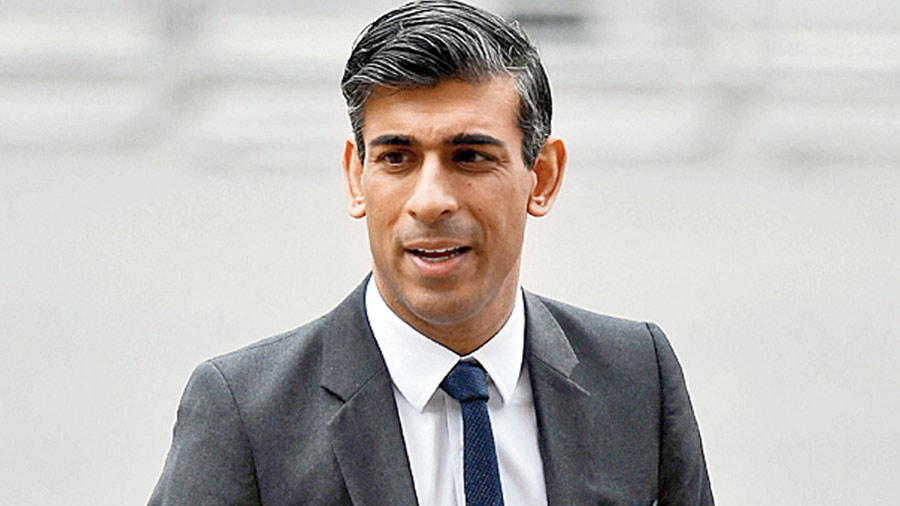
Rathore is optimistic about India-UK relations under Sunak’s prime ministership TT archives
How do you envision the UK-India relationship developing considering Rishi Sunak is now the Prime Minister of the UK?
Sunak himself summarised it quite well when he said that the UK-India relationship should be a “two-way exchange”. This will benefit both the economies, especially when it comes to collaborating on big projects such as the India-UK Free Trade Agreement. I also hope it provides more opportunities to international students, especially Indians, since I’ve always been an advocate for the post-study work visa in the UK for Indian students. Overall, under Sunak, I think the future is immensely bright for the exchange of knowledge and business between both countries.
Do you think the UK’s current policies are doing enough to battle systemic racism against Indians?
To battle systemic racism against Indians or anyone, the most important thing to do is to call it out. There are structural problems with race within our communities. A lot of groundwork is being laid to address this issue. The government has formed an Equalities Office, whose entire purpose is to eradicate systemic racism. From decolonising the curriculum to workplace changes to reformation of the criminal justice system, there’s a lot that’s being done.
‘The rightful country as far as the Kohinoor goes is India’
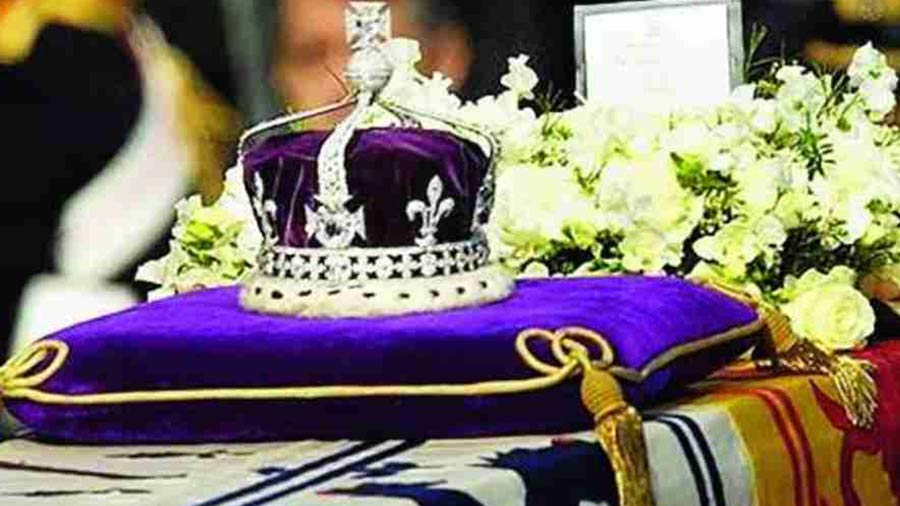
Rathore feels that the Kohinoor should be returned to India TT archives
Following Sunak’s appointment, there was even more talk of the UK giving back the Kohinoor and which nation would be entitled to get it should that happen. What’s your take?
In August, London’s Horniman Museum agreed to return 72 stolen Nigerian artefacts, including the Benin Bronzes (a group of sculptures made of brass and bronze), taken over a hundred years ago. So, following the same precedent, the rightful country as far as the Kohinoor goes is India.
What are the biggest social issues or challenges Indians face in the UK that you are trying to solve?
Indians in the UK work very hard, but the barriers to success are very high. From colourism to systemic racism, from mental health being a taboo to housing issues to lack of social mobility, it’s a long list. A lot of these come from the systemic hierarchies which have been embedded since colonialism began. My work to address these issues includes working on a race and equality charter with my university, lobbying for more BAME (Black, Asian and minority ethnic) jobs and making Indians more aware about the resources they have available that can help them succeed.
